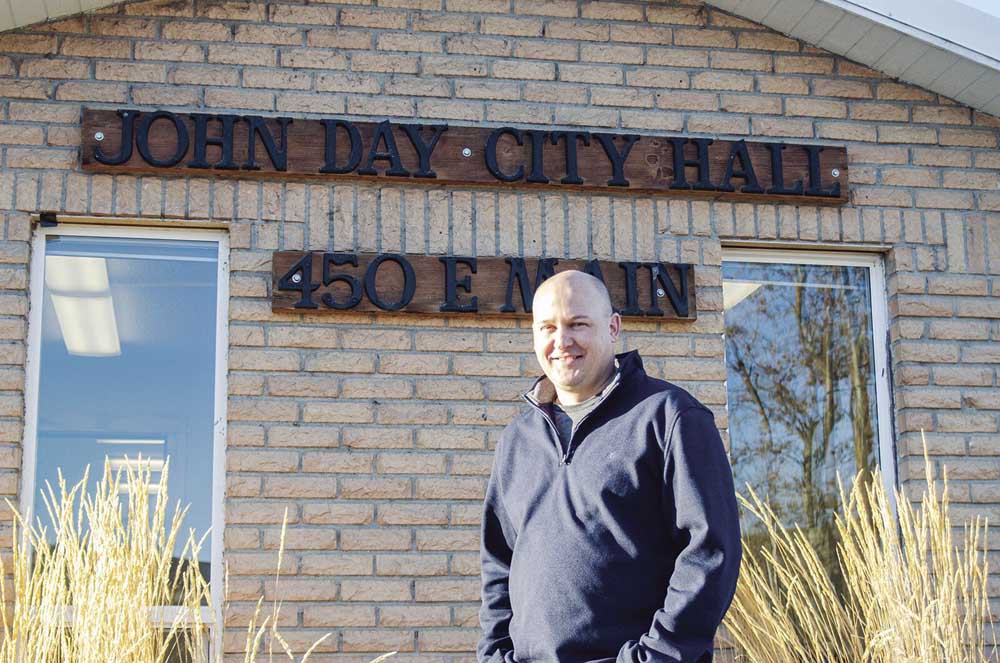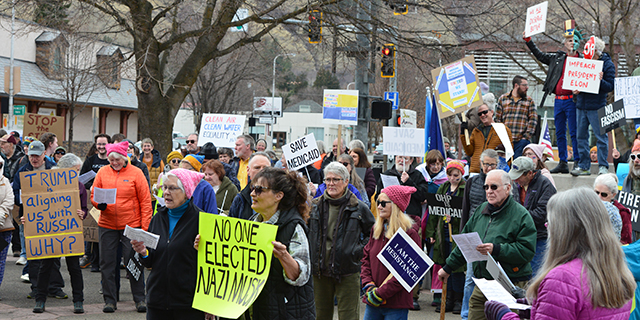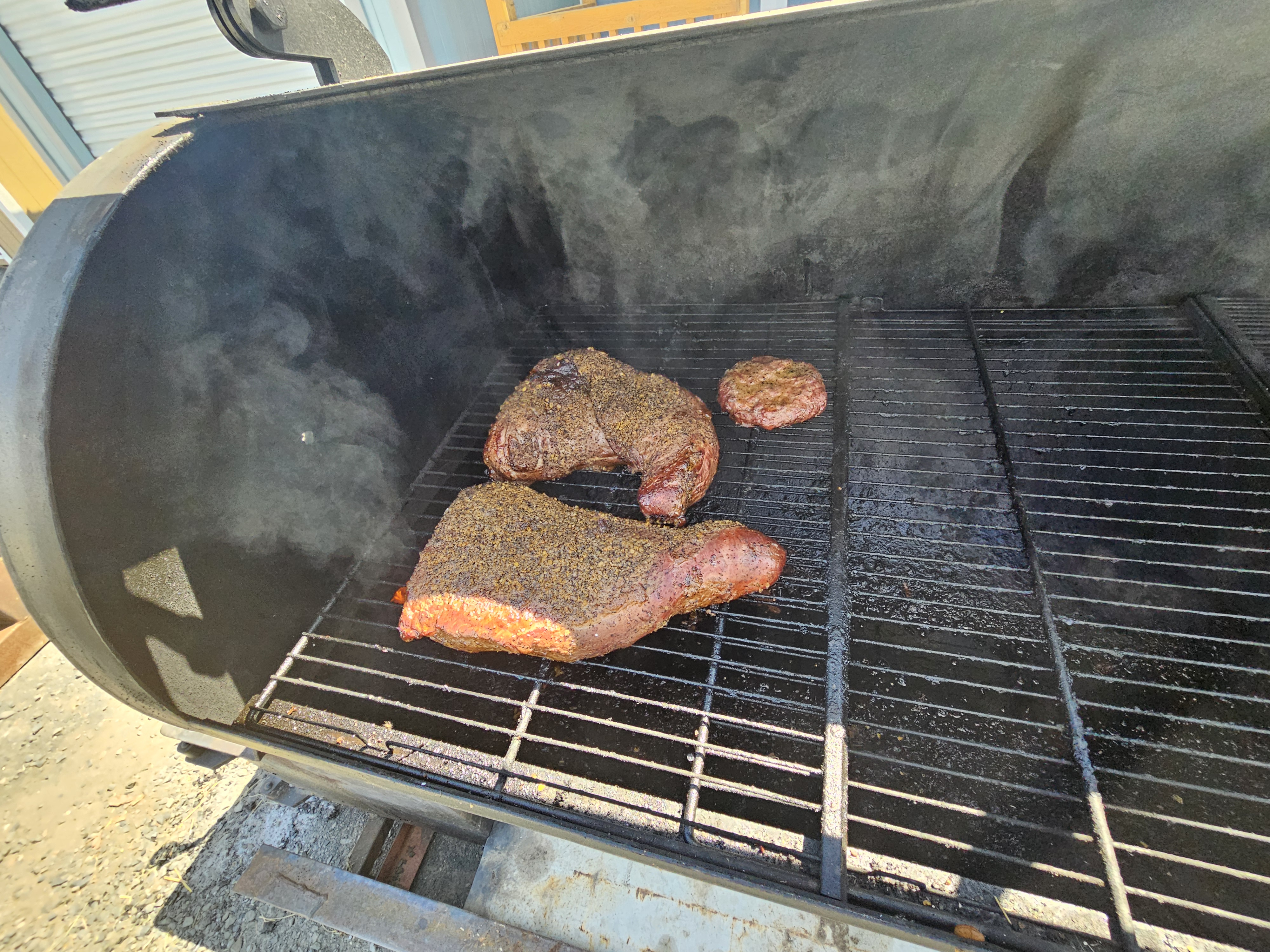Hope 4 Paws works to control growing numbers of unwanted pets in Grant County
Published 5:00 am Wednesday, April 3, 2024

- cat reporoduction.jpeg
Feral cat colonies beware: Hope 4 Paws wants to slow your spread throughout Grant County.
While that isn’t all the animal lovers do, it does make up the lion’s share of the work Hope 4 Paws has done in Grant County since the nonprofit’s inception in 2015.
Along with trapping, spaying, neutering and releasing feral cats, Hope 4 Paws also offer vouchers for $50 off the spaying or neutering of a dog and $30 off the spaying or neutering of a cat at the John Day River Veterinary Center, and works to find foster and permanent homes for cats and dogs that are either strays or have been given up by their previous owners for whatever reason.
Hope 4 Paws started as a sort of alliance with an organization out of Baker County. Hope 4 Paws Board of Directors Chair Scotta Callister said that the group eventually became more focused on issues pertaining to Grant County and decided to go their own way.
“We realized that we had specific and many different issues to confront in Grant County than they had in Baker County, so we thanked them for their great help and struck out on our own, and that’s when Hope 4 Paws was born,” she said.
Callister said Hope 4 Paws fills a vital need in Grant County.
“This is a county with isolated, remote communities that don’t have access to a lot of services,” she said.
“One of the issues we found is that there’s no government-sponsored animal control here, and there’s no shelter, whether private or public, and there’s no impact facility. Really, pets and pet owners are on their own, and that was a critical gap in services that we felt we needed to try to fill.”
Reducing cat calls
Colonies of feral cats are a big problem in some parts of Grant County.
“We have a huge one in Dayville right now,” Hope 4 Paws board member Chris Labhart said. “We’re talking huge. (It) started out over 100, and I think we’re down to 40.”
When large cat colonies develop, Labhart said, people call Hope 4 Paws and ask for help in dealing with the feline overload.
“So we have our cat whisperer, Susan Church, and then she works with a group of volunteers and she traps these animals and then has to make reservations (for spaying and neutering) with our local vet clinic here in town,” Labhart said. “They, in turn, are booked all the time. So right now if she captures some animals, we want to fix them, hopefully give them some vaccines also, but it’s about a month out.”
In the meantime, the animals have to be cared for. That’s a problem, according to Labhart.
“Yeah, we have no place to keep them,” he said. “We’d love to have a shelter of some kind to at least put the animals in.”
While the county never had a dedicated animal shelter, it did have a dog pound at one point. But, according to Labhart, the facility couldn’t keep the pooches locked up and eventually was forced to close.
“Canyon City used to have a pound up by the cemetery quite a few years ago,” Labhart said. “People kept busting their pets out.”
Feral cat colonies can cause a lot of damage to local ecosystems and be a threat to the health of domestic pets as well.
“I don’t know if you’re aware, but cats kill a tremendous amount of birds,” Labhart said. “They can wipe out a quail colony, songbirds, whatever. Then, if you get a colony that gets infected with some sort of disease, that disease can spread to other animals, other domesticated animals.”
To control the feral cat population, Hope 4 Paws traps the animals and brings them to the vet clinic for spaying and neutering before releasing them back to their colonies. But that can get spendy — last year, Hope 4 Paws spent around $28,000 on its spay and neuter program.
The volunteers who go out and trap the feral cats also put themselves at risk of injury, as Church can attest.
“A cat bite is very infectious,” Church said. “I’ve been to the emergency room once and to urgent care once.”
Hope 4 Paws board member Shawn Duncan said spaying or neutering your pets is the best way to prevent feral cat colonies and unwanted dogs.
“The more we can talk people into spay and neutering, the easier it is for not having all of the puppies not being able to go anywhere and the kittens not being able to go anywhere,” she said. “Susan (Church) does have places, humane societies and rescues that she can send the kittens to, but everybody’s getting so overwhelmed that a lot of places aren’t taking animals.”
Gone to the dogs
Duncan spends her time with Hope 4 Paws seeking foster placements and permanent homes for dogs that are either strays or wind up being too much dog for their previous owners to handle properly. One of the reasons for forming Hope 4 Paws was the way the owners used to rid themselves of unwanted dogs prior to the group’s arrival in Grant County.
“So many people would just take the dogs out and shoot them before there was any place for them to go or any help for them,” she said. “They would literally take the dogs out and shoot them — puppies, whatever.”
Duncan said she’d also seen cases where people taken their dogs out to the woods and left them to die in crates without any food or water.
“That’s the stuff we’re trying to prevent,” she said.
One of the challenges Hope 4 Paws faces is getting the word out to Grant County residents that the organizations is here and willing to help people who find themselves with pets they no longer want or are unable to care for.
“I’ve had a couple of cases lately where the people have had puppies, and they want a bunch of money and they don’t get it,” Duncan said. “By the time the puppies are four or five months old, the people don’t want the puppies anymore and they can’t sell them. Then they’ll take them out.”
Duncan said if she could speak directly to dog owners who were considering some of the more grisly solutions to their issues, she’d tell them to simply have patience.
“Reach out and give us a little bit of time to work on finding a rescue that can take them in,” she said.
Get involved
While Hope 4 Paws is available to help pet owners in need, the organization could be even more effective if it had more volunteers.
“We can always use fosters because we have dogs coming in that we have to place at the vet because we don’t have foster homes for them,” Duncan said.
Other volunteer opportunities with Hope 4 Paws include assisting with trapping and releasing feral cats and serving on the board of directors.
The organization’s other big need is money to fund operations.
A recent benefit at the John Day Elks Lodge, dubbed Tacos to the Rescue, featured a taco dinner, live music and auction, put a dent in that need by raising more than $13,000.
“This turnout was fantastic. It was a fabulous, fabulous benefit,” Duncan said. “Usually we don’t come close to that amount, but it’ll do a lot of spay and neuters for the cats and the dogs, let me tell you.”
Still, those expenses will keep on coming, and more donations will be needed to cover the cost.
Duncan said she doesn’t like to think about where the county would be if it didn’t have Hope 4 Paws.
“We would be in one heck of a position,” she said.
“I think that we would be back to the same place where (pet owners) were taking dogs out and just shooting them or taking cats out and just turning them loose and causing the feral colonies.”
Get in touch
Hope 4 Paws can help pet owners get their animals spayed or neutered and can try to find new homes for pets people can no longer care for on their own.
To request assistance or inquire about volunteer opportunities, contact Hope 4 Paws through the organization’s facebook page or by email at hope4pawsgc@gmail.com.
Donations can also be made through Facebook or on the organization’s website at www.hope4pawsgrantcounty.com/ or you can mail a check to Hope4Paws, PO Box 912, John Day, OR 97845.





